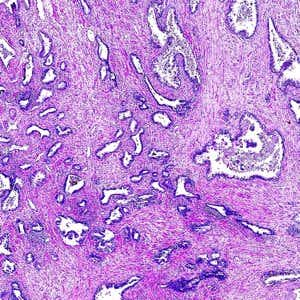
An interesting new treatment for early stage prostate cancer is making headlines. Researchers describe a unique approach called vascular targeted photodynamic therapy or VPT. It utilizes the unique properties of a compound from bacteria found on the sea floor.
How Do Doctors Use the Compound from Bacteria?
In this study, men diagnosed with low-risk prostate cancer were randomly assigned to active surveillance (207) or to the new treatment (206). Those selected for treatment went through anesthesia and an MRI while optic fibers were threaded into the prostate tumor. Then the drug padeliporfin, a light-sensitive compound from bacteria, was injected. Once padeliporfin penetrated the prostate gland, red laser light was sent through the fibers to activate the drug and kill cancer cells. Healthy tissue is supposed to remain unharmed.
This procedure has now been tested in 415 men at 47 medical centers across Europe. The follow-up for both groups included PSA measurements every three months and a prostate biopsy every year.
The Results of VPT:
After two years, about half the men who underwent VPT were judged cancer free. That compares to about 14 percent of those treated with active surveillance. Cancer had progressed in 28 percent of those in the treatment group, compared to 58 percent of the men under active surveillance. The authors conclude, “Padeliporfin vascular-targeted photodynamic therapy is a safe, effective treatment for low-risk, localised prostate cancer.”
Whether this treatment will work for more advanced prostate cancer remains to be determined.
The Lancet Oncology, Dec. 19, 2016
In an accompanying editorial, Dr. Stephen Freedland of Cedars-Sinai Medical Center in Los Angeles notes that death from prostate cancer is extremely rare in men with such low-risk disease. But complications of treatments such as prostatectomy are not unusual. Thus, a treatment that had few if any side effects might be considered helpful for men in this situation. We’ll have to wait and see whether this compound from bacteria proves to offer the benefits that we hope it can.

